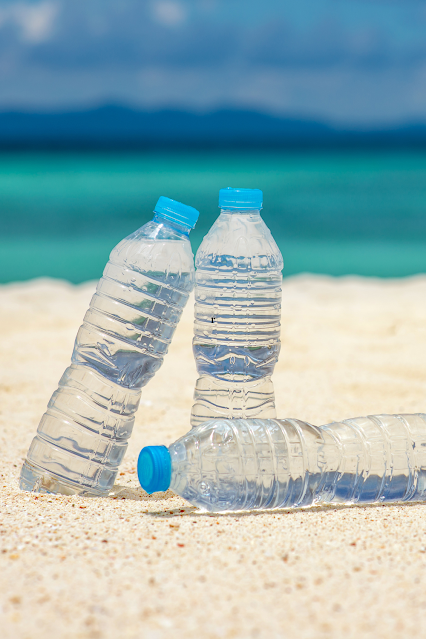Water is essential for our well-being, and staying properly hydrated is crucial for maintaining good health. However, with various options available in the market, it can be challenging to determine which type of water is the healthiest choice. In this article, we will explore the pros and cons of bottled water, filtered water, and tap water, allowing you to make an informed decision about the water you consume.
Bottled Water
Bottled water has gained popularity over the years as a convenient and portable option for hydration. It is available in various forms, including mineral water, spring water, and purified water. While bottled water offers some benefits, there are certain considerations to keep in mind.
Pros:
Convenience: Bottled water is readily available, making it convenient for individuals on the go. It can be easily purchased from stores, vending machines, or even online.
Portability: The portability of bottled water allows you to carry it with you wherever you go. This makes it a suitable option for outdoor activities, travel, or emergencies.
Taste: Some people prefer the taste of bottled water, especially certain brands that may have a specific mineral composition or filtration process.
Cons:
Environmental Impact: One of the major downsides of bottled water is its environmental impact. The production and disposal of plastic bottles contribute to pollution and waste, so if you can, opt for boxed water. Recycling rates for plastic bottles vary, and a significant portion still ends up in landfills or oceans.
Cost: Bottled water can be relatively expensive compared to other options, especially when consumed regularly. The costs can add up significantly over time, impacting both your wallet and the environment.
Regulation: While bottled water is regulated, the standards may not be as stringent as those imposed on tap water. This means that the quality of bottled water can vary, and some brands may not adhere to the highest quality control measures.
Filtered Water
Filtered water refers to water that has undergone a filtration process to remove impurities. This can be done through various methods, such as activated carbon filters, reverse osmosis systems, or pitcher filters. Let's explore the pros and cons of filtered water.
Pros:
Contaminant Removal: Filtration systems are designed to remove impurities, including chlorine, sediment, heavy metals, and certain chemicals. This can improve the taste, odor, and overall quality of the water.
Cost-effective: Investing in a home filtration system can be cost-effective in the long run, especially if you consume a significant amount of water. Instead of purchasing bottled water, you can use a reusable water bottle and fill it with filtered water from your own tap.
Customization: Different filtration systems can target specific contaminants or provide additional benefits such as alkaline or mineralized water. This allows you to customize your water based on your preferences and needs.
Cons:
Maintenance: Filtration systems require regular maintenance, including replacing filters, cleaning, and monitoring for optimal performance. Neglecting these maintenance tasks can lead to reduced effectiveness and potential bacterial growth.
Upfront Cost: While long-term savings can be achieved with a home filtration system, the initial investment cost can be relatively high. Depending on the type of system, installation and replacement filters can add to the overall expense.
Limited Portability: Unlike bottled water, filtered water is not as portable. While you can use a filtered water bottle, you may not always have access to filtered water when you're away from home.
Tap Water
Tap water is the most accessible and affordable option for many people. It undergoes a rigorous treatment process before reaching your faucet, ensuring it meets certain quality standards. Let's explore the pros and cons of tap water.
Pros:
Strict Regulations: Tap water is regulated by government agencies, such as the Environmental Protection Agency (EPA) in the United States. These regulations ensure that tap water meets specific safety and quality standards, protecting consumers from harmful contaminants.
Affordability: Tap water is significantly cheaper than bottled water or filtration systems. Paying for water utility bills is usually a fraction of the cost of purchasing bottled water over time.
Accessibility: Tap water is available in most homes, offices, and public spaces. This accessibility allows for easy hydration without the need to carry around bottled water or rely on filtration systems.
Cons:
Taste and Odor: The taste and odor of tap water can vary depending on the region and water treatment process. Some people find the taste of tap water less appealing compared to other options.
Contaminant Risk: While tap water is generally safe to drink, there is a small risk of contaminants such as lead, pesticides, or bacteria in some areas. This risk can be mitigated by regular testing and adherence to local water advisories.
Infrastructure Limitations: In certain regions, aging water infrastructure may lead to issues such as pipe corrosion or water quality concerns. However, these issues are more related to the infrastructure itself rather than the inherent quality of tap water.
Conclusion
Choosing the healthiest water option ultimately depends on your personal preferences, convenience, and the quality of your local tap water. While bottled water offers convenience, it comes with environmental and cost implications. Filtered water provides an effective way to remove impurities, but maintenance and portability can be limiting factors. Tap water, regulated by authorities, is affordable and easily accessible, but taste and potential contaminants can be a concern.
To make the healthiest choice, consider investing in a reliable filtration system for your home and use a reusable water bottle for portability. Regularly test your tap water quality and take necessary precautions if any concerns arise. By balancing convenience, cost, and environmental impact, you can make an informed decision and ensure you stay properly hydrated with the healthiest water option for you.



Post a Comment